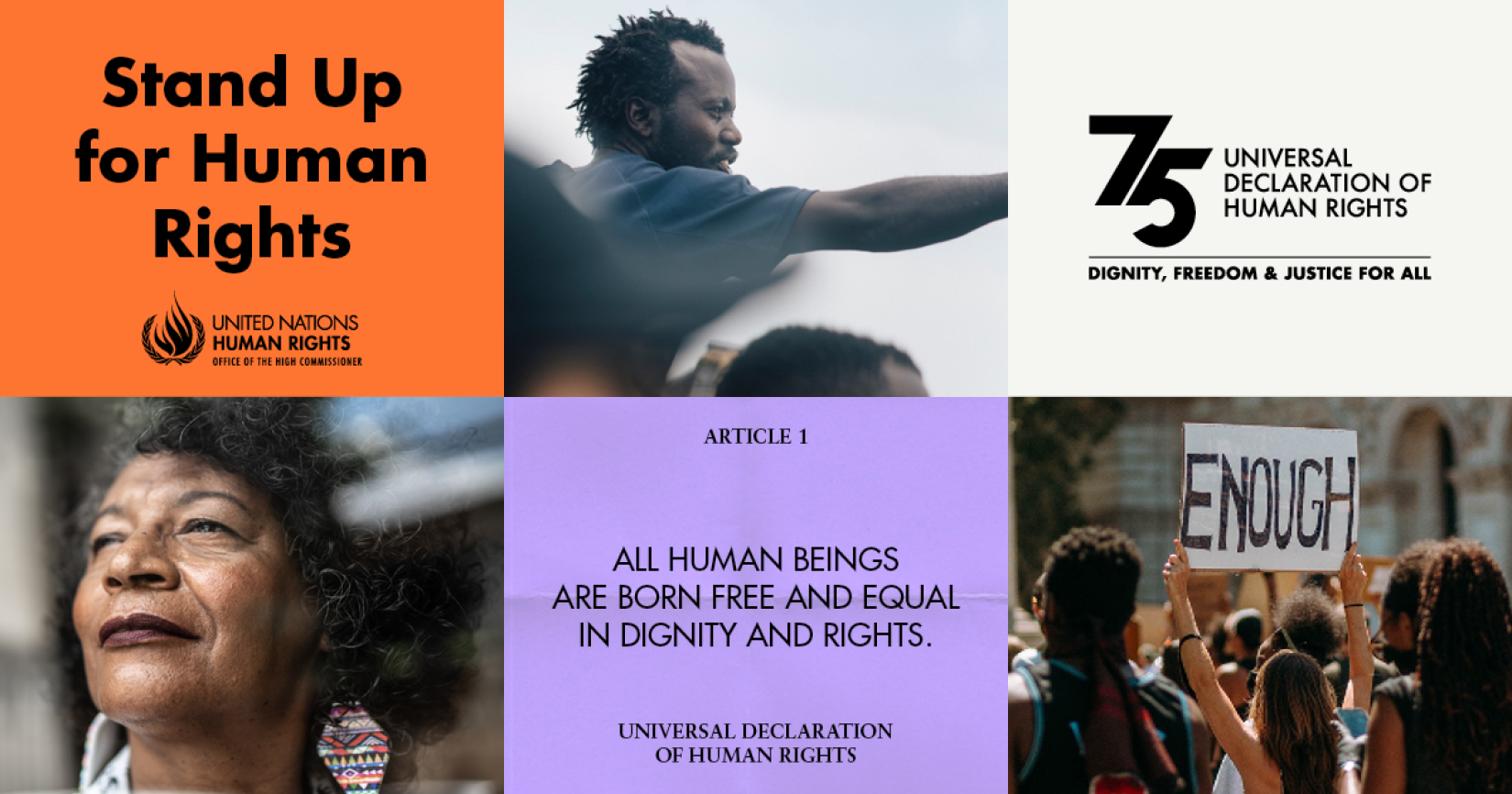Human Rights Day Statement by the UN Resident Coordinator
10 December 2022
The 16 Days of Activism against Gender Based Violence is an annual international campaign that kicks off on 25 November, the International Day for the Elimination of Violence against Women, and runs until 10 December, Human Rights Day.

The end of the 16 days of activism against gender based violence is a hard phenomenon to celebrate or commemorate. This is because of the need to advocate for an end to gender based violence is work we should do all year. This time coincides always with an important time when the world celebrates and commemorates Human Rights Day.
This year’s Human Rights Day theme is celebrating the 75th Anniversary of the Universal Declaration of Human Rights (UDHR) under the slogan “Dignity, Freedom and Justice for All”. In his message, Volker Türk the UN High Commissioner for Human Rights has this year underlined that “On this Human Rights Day, we reiterate the need and relevance of human rights now as they were seventy-six years ago. Our hope is to increase knowledge of the UDHR as a foundational blueprint for taking concrete actions to stand up for human rights and tackle pressing global issues today”.
To ensure that the ideals enshrined in the Universal Declaration of Human Rights become reality for Basotho, there is a role for everyone to play in ensuring respect, promotion and protection of human rights for all. The passing of The Persons with Disability Equity Act by the government of Lesotho has signified the commitment to ensure and safeguard the rights of people with disability in Lesotho. This Act now needs to be fully implemented to truly ensure that all Basotho with disabilities enjoy the full protection of and provision of their rights. Human rights start at the family level permeating to communities, schools, the workplace and to parliament. Indeed, as one of the lead drafters of the Universal Declaration Eleanor Roosevelt said in 1958:
“Where, after all, do universal human rights begin? In small places, close to home—so close and so small that they cannot be seen on any maps of the world. Yet they are the world of the individual person; the neighborhood he/she lives in; the school or college he/she attends; the factory, farm, or office where he/she works. Such are the places where every man, woman, and child seek equal justice, equal opportunity, equal dignity without discrimination. Unless these rights have meaning there, they have little meaning anywhere.”
The UN commits to continue working with the Government of Lesotho towards strengthening a national human rights legislative, policy and institutional framework for the promotion and protection of human rights. One of the institutions that will strengthen the national protection framework for human rights is the Human Rights Commission whose establishment is still awaited.
This year’s activities on the 16 Days of Activism Against Gender Based Violence across the country have indicated a need for more engagement, more platforms and more importantly a need for a better coordinated and systematic approach to ending gender based violence in Lesotho. Throughout the several activities in commemoration of 16 Days of Activism, numerous stories were told of women and girls that have survived gender based violence and remembered with sadness those that have died and whose stories we can only tell. We heard from a sixteen-year-old girl who as a result of being raped by her father is now a young mother to her own sister. Of the many dreams she has, she shared how she would like to go back to school and be able to raise her child.
Gender based violence does not only affect individuals through the violence in their bodies, but it also affects children born of such incidences, children that live through these circumstances, affects productivity and production thus the economy. It has a bearing on our health systems, affects development and truly impacts all aspects of our lives. The UN joins the people of Lesotho to advocate against gender based violence for 365 days.
The Universal Declaration of Human Rights is as relevant today as it was when it was adopted 75 years ago. It has withstood the tests of the passing years, and the advent of dramatic new technologies and social, political and economic developments that its drafters could not have foreseen. For instance, its provisions are so fundamental that they can be applied to every new dilemma including new phenomena like artificial intelligence, the digital world and countering the effects of climate change on people.
Everyone is entitled to all the freedoms listed in the Universal Declaration "without distinction of any kind such as race, colour, sex, language, religion, political or other opinion, national or social origin, property, birth or other status."
Gender is a concept that is addressed in almost every clause of the Declaration. For its time, the document was remarkably lacking in sexist language. The document refers to "everyone," "all" or "no one" throughout its 30 Articles. Indeed, for the first time in the history of international law-making, women played a prominent role in drafting the Universal Declaration.
But, 75 years after its adoption, the work the Universal Declaration lays down for us to do is far from over, and it never will be. It is the duty of everyone to ensure that the provisions of the Universal Declaration and all the international and regional treaties to which Lesotho is party are turned into a reality for the people of Lesotho especially the most marginalised.





